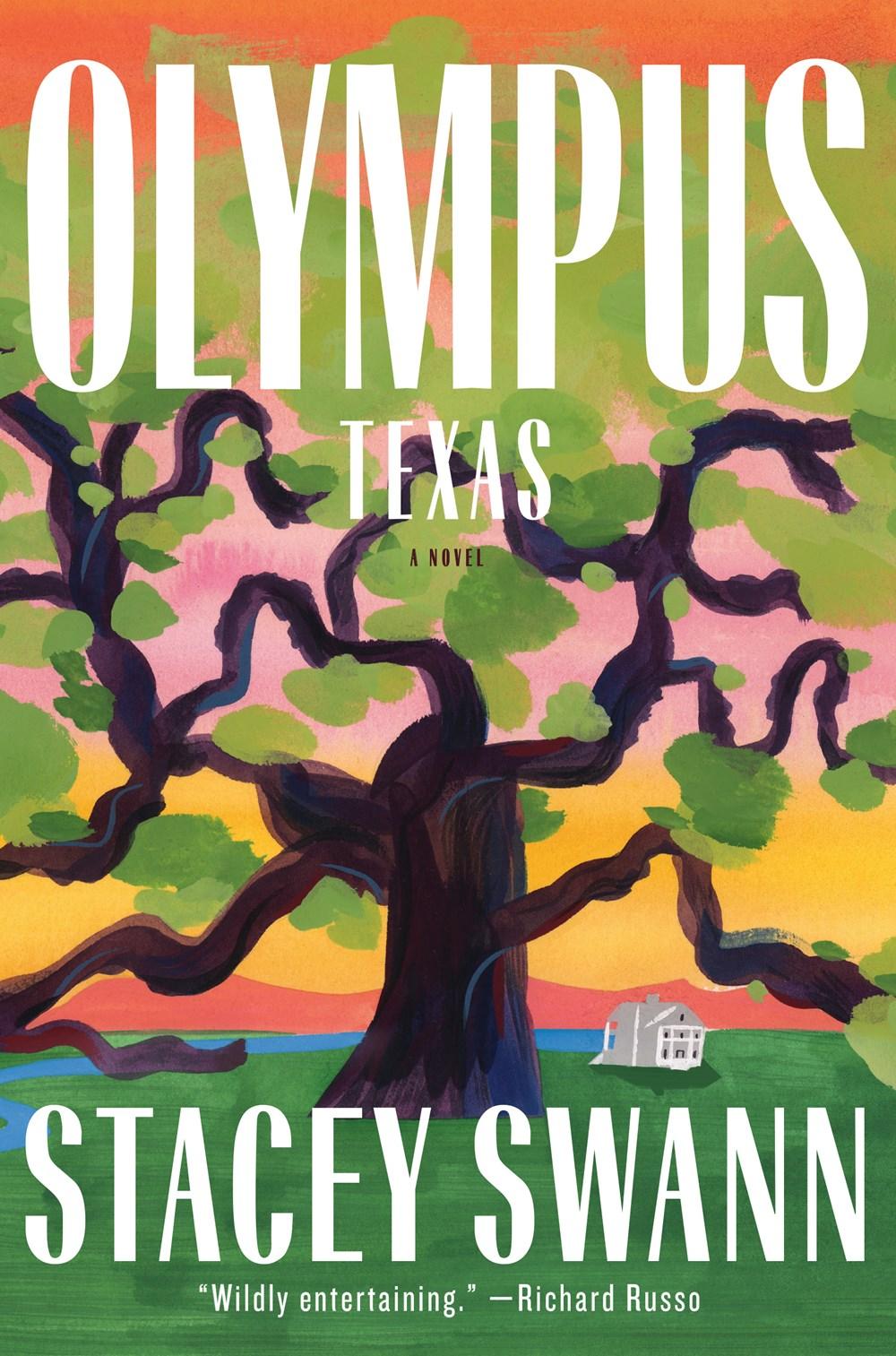
LITERARY FICTION
Stacey Swann
Doubleday
Hardcover (also available as an e-book, an audiobook, and in large-print paperback), 978-0-3855-4521-1, 336 pgs., $26.95
May 4, 2021
“But then, is everyone not his own god?” (OVID, The Metamorphoses, translated by Allen Mandelbaum) opens Olympus, Texas, and right away you know two things: this is true and there is going to be trouble.
March Briscoe returns to his hometown after more than two years of self-imposed exile; he thinks he’s served his term for having an affair with his brother’s wife—possibly not everyone agrees. March arrives on a Friday, and within a week, there are multiple instances of property damage, at least two couples face divorce, siblings are ripped from each other, several people are on the wrong end of several fistfights, and someone is dead. The Briscoes face true tragedy that threatens their relationships to each other, shakes their sense of themselves, and forces a long-time-coming reckoning with the damage done by the going-along-to-get-along damage of individual and collective failings.
Olympus, Texas is the debut novel from Texas writer Stacey Swann, who possesses a distinctive voice, a Southern style of storytelling as befits Baja Louisiana. East Texas, in all its primordial, primeval, practically biblical glory (“The world without form and without shape”), is the fitting setting for the fictional Olympus and the sins of its minor deities. The big thickets east of Interstate 35 are “[n]ot a hiking forest but scratchy impenetrability” and the cottonwood fluff “rides a mud-saturated current” in the slow-moving Brazos. Olympus is fictional but only in the sense that you can’t locate it on a map. Everyone who grew up in or currently lives in small-town Texas (small-town anywhere) will recognize it viscerally; there are the comfort and claustrophobia, the generations of ne’er-do-wells and the fiefdoms, the practical if not literal incestuousness of it all, and the gossips who draw nourishment, vampire-like, from the foregoing.
The narrator sets the stage with a voiceover, vaguely ominous, complete with props and blocking, as the actors take their places. “Peter and June in their bed, old and brass, columned like their home. The brass rises like prison bars . . .” Peter found the bed in his parents’ barn and cleaned and polished it for his bride, but “the tarnish crept back.” Swann’s metaphors are large; each morning, June takes her coffee to the second-floor balcony, and Peter takes his coffee to the front porch. There they sit, sipping simultaneously but apart, sometimes speaking “through her wooden floor, his wooden ceiling.” As the drama opens, Peter takes a phone call on the porch, and June detects a “whiff of doom” and tips her coffee mug over Peter’s head, one floor down.
The Briscoe family is “a walking collection of deadly sins.” Peter and June have three children together: Peter Jr (“Hap”), Thea, and March. Wherein lies the rub? Peter loves “with deliberation, but his lust is not so orderly.” The three Briscoe kids have three half-siblings, all born after the marriage of Peter and June. Tucked inside the action of each day, interspersed between numbered chapters of present action, are origin stories (a Greek chorus, if you will)—of rage and broken hearts and mistakes and youthful promises impossible to keep—offering explanations for the now-fraught relationships that lend much to the richness of these characters.
Swann is skillful at foreshadowing unseemly mysteries, laugh-out-loud dialogue, and extracting maximum texture from analogies without being wordy. June has been angry with March since he was born; March feels the heat of her anger like “a hot lead blanket against his skin. Years of exposure had cured his urge to flinch.” Swann also deftly pens an epic set piece of a funeral, the impetus for more than one sorely needed come-to-Jesus meeting.
And here’s the crux of Olympus: privilege. When Arlo puts his hands, uninvited, on a woman in a club, “she retracts in on herself, as if she possesses the ability to reduce her own volume.” Peter’s beautiful wife, Vera, would rather not be noticed, not be seen. Women not so beautiful “didn’t face a city of men who thought they should have her simply because they wanted her, like her beauty broke the lock of herself, leaving her open to be taken by anyone interested.” Near the end of the book, Arlo wonders, How much of what has gone wrong in the past week is just about him expecting to get what he wants? Yes, how much? He is not alone in his expectations.
Ultimately, Olympus feels a bit old fashioned and traditional, but then our foundational myths would be. This debut novel is a great combination of rollicking entertainment and timeless philosophical questions—a big, messy family saga about home and love and how we mere mortals fail each but try, try again.
Stacey Swann holds an MFA from Texas State University and was a Stegner Fellow at Stanford University. Her fiction has appeared in Epoch, Memorious, Versal, and other journals, and she is a contributing editor of American Short Fiction. She is a native Texan.
